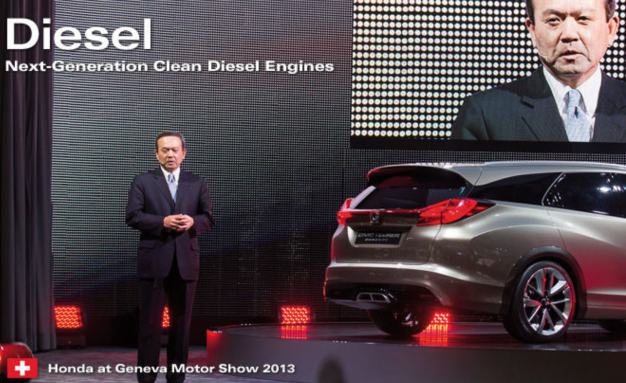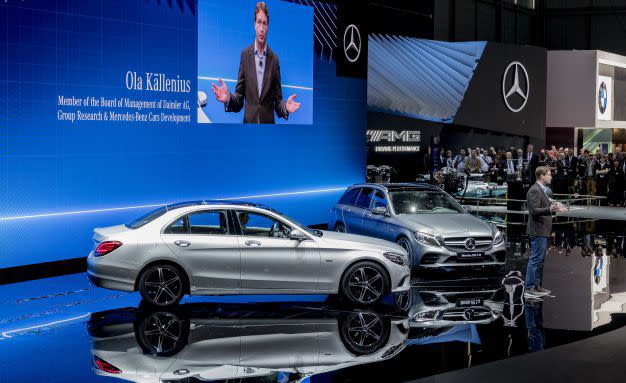Toyota Drops Diesels in Europe
The diesel’s fall from grace in Europe, where it has long been a mainstay of the car market, has been quick in the aftermath of the Volkswagen diesel scandal. And last week at the Geneva auto show, Toyota also announced that it will be phasing out all diesel engines from its passenger-car lineup in Europe this year.
Demand for diesels in Europe is falling rapidly, slipping from about 50 percent of the passenger-car market in 2017 to about 44 percent this year and anticipated to fall to 30 percent in 2020. At Toyota, hybrids now make up 41 percent of sales across Europe and nearly 80 percent of sales for the C-HR crossover. Toyota said that the new generation of the Auris-the region’s version of the Corolla-will be offered only in hybrid and gasoline versions.

Toyota wasn’t alone in making it official. Honda also clarified at the Geneva show that it will effectively be replacing its much touted diesel 1.6-liter i-DTEC engine with a hybrid powertrain in the CR-V. Project leader Takaaki Nagadome told the U.K. Telegraph newspaper, “It’s a trend in the market we cannot ignore.”
Digging In
But not everyone is in a rush to abandon the technology. Mercedes-Benz revealed a diesel plug-in hybrid version of its C-class, bearing the EQ Power badge, an offshoot of the EQ sub-brand of electric vehicles set to arrive starting next year. Mercedes-Benz notes that this is the first time the automaker has paired a diesel engine with a plug-in hybrid system. It uses a nine-speed automatic transmission, the larger 13.5-kWh battery pack, and a 90-kW motor system supplying an extra 295 lb-ft of torque, for a total electric range that could top 20 miles by the stricter, world-harmonized (WLTP) standards.

“With the right technology, the diesel has a future,” said Ola Källenius, Daimler board member and development chief for Mercedes-Benz cars, at the brand’s Geneva press conference. “Improving it is better than banning it,” he added.
Volkswagen’s Matthias Müller-despite the automaker’s much trumpeted push toward electrification and the development of fully electric I.D. vehicles-told Reuters at the show that he is “firmly convinced that diesel will experience a revival.”
Other European automakers, such as Fiat Chrysler Automobiles (FCA), PSA, and Renault, haven’t sounded nearly as optimistic about diesel passenger cars. And with a transition to a tougher tailpipe-based method for certifying diesels, bringing one to market is only going to become more difficult and expensive.
What the European diesel market’s decline and decomposition likely means for the United States is that, over time, we’ll get fewer diesels as well, since sales volumes in Europe have traditionally helped bankroll the development of new diesel engines. Currently, BMW, Chevrolet, GMC, Jaguar, and Land Rover all offer at least one U.S. passenger vehicle with an available diesel, and the Jeep Wrangler, the Kia Sorento crossover, and the Mazda CX-5 will all be available with diesel options soon. Diesel may be on the decline in Europe, but it it’s not dead yet.
You Might Also Like

